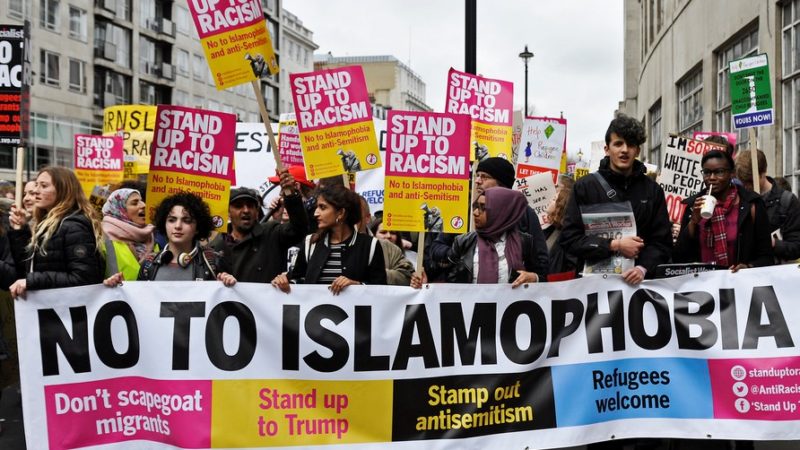
Pic: Eco-Socialism Conference
At the Eco-Socialism Conference on 7 December 2024, at South Bank university, the most valuable presentation, for me, was from Clara Paillard from the Climate Justice Caucus organising in the Unite union.
She described the Heat Strike initiative, in which Extinction Rebellion has been working with unions. It got some policy passed at TUC Congress in 2024. It calls for a maximum workplace temperature (36ºC), heatwave furloughs, and climate action plans at all levels (workplace, firm, sector, etc.).
She also mentioned the Worker-Climate Project initiated by Labour for a Green New Deal. Clara was straightforward and sober. For example, when I asked about the Our Power report, she said it was good but as yet has had no penetration among Unite members in the North Seal oil and gas industry.
I don't know how lively the Worker-Climate Project is at present, either. Labour for a Green New Deal had no profile at the 2024 Labour Party conference, leaving the "green" angle instead to the Socialist Environment and Resources Association, SERA. SERA was left-wing when founded in 1973, but has been right-dominated for many years now.
The forerunners of Anti-Capitalist Resistance, the main force behind the Eco-Socialist Conference, spent some years organising a left presence in SERA, but concluded that SERA had too little life and too much bureaucratism for that to succeed. SERA had many fringe meetings at Labour conference 2024, but typically co-sponsored by renewable-energy capitalists.
At the conference I also talked with activists at the Climate Resistance stall. Theirs is a new group formed early in 2024, apparently as a splinter from Fossil Free London. Climate Resistance does one-off protests like its interruption of Rachel Reeves's speech at Labour conference 2024, but (unlike JSO and early XR) designed to avoid arrests as far as the organisers can manage.
Its next campaign will be to "Abolish Billionaires", focusing round a call for a wealth tax.
I said to those activists that such sporadic minority protest, though I admire the energy of its organisers, seems to me to have limited potential, and that we as Workers' Liberty focus more on activity in the labour movement and in connection with workers' struggles. They saw the value of our sort of activity too, and, I found, are knowledgeable and thoughtful about issues often glossed over in environmental agitation.
They think that nuclear power must be part of future low-carbon-emission electricity generation. They agree that disposing of waste from old solar panels will become a big problem, scarcely even discussed so far. They agreed that an energy transition requires major reconstruction of the electricity grid (including new pylons). They agree that reducing emissions in countries like Britain must include encouraging households to reconfigure as larger, more diverse, more co-operative, more resource-sharing, as against the relentless drive in recent decades towards smaller and more walled-off households.
I also talked with Mark Douglas and other people on the Green Left stall. Green Left is long-established, and now working with a new Greens Organise initiative, which if I have it right seeks to be an umbrella alliance of left groupings in the Green Party.
I was taken aback, though, when some of those on the Green Left stall defined their main difference from the established Green Party leadership as being about that leadership being, allegedly, a "political cult" focused on transgender rights. They claimed that "biological sex is an immutable fact" and that the Green Party has been expelling people for disputing that. [1]
Simon Hannah of ACR and the other conference organisers, Will McMahon and others, had plainly put a lot of work into it. They had remobilised a good few older people from ACR's various predecessor groups (Socialist Resistance, Socialist Outlook, etc., back to the International Marxist Group pre-1985, which had 700 to 800 members, mostly very active, in its heyday of the late 1970s), and there were a few 20-somethings there too. At the start of the event I counted 50 present in-person – more came in and out during the day – and 34 online (that grew during the day, too).
However, I learned less from the main sessions than from Clara Paillard's workshop or conversations on the edge of the event. It was not that the platform speeches were particularly wrong, as that, in my view, they seemed bland (or even too vague to be wrong), and to expound little connection to working-class or labour-movement activity (or indeed activity in general). I was told many times during the day that capitalism is eco-destructive, that we need socialistic measures, that the Global South gets a bad deal, and indeed that we should be "dialectical", but I guess most people attending thought that way already.
Simon Hannah, in a speech on eco-socialist planning, mentioned "metabolic rift", but not, I thought, in a way that will clarify anyone, on any side, in the debate in Workers' Liberty about the theoretical weight of that term.
The idea, said Hannah, is that human society is part of nature, that it acts on nature, and under capitalism the impacts are big and change biogeochemical cycles in an unsustainable way. That really amounts to no more than restating the known fact that human society is disrupting the Earth's environment.
He and other speakers spoke repeatedly about "de-growing", "de-scaling", or "scaling down" economic activity. Hannah said he "does not like using the term de-growing", because it evokes "green austerity", but he does agree with Jason Hickel's book on "How Degrowth Will Save The World". I responded that the only social force capable of remaking economic life on sustainable grounds is the working class, and the working class will be able to do that only on the basis of victories on wages, social provision, immediate measures to replace fossil-fuel power by renewable and nuclear sources, etc., all of which mean "growth" of sorts. After working-class victory we can remodel life to include more sharing of resources, larger and more diverse and cooperative households, etc. Slump and depression within capitalism (the only immediately-available form of degrowth) will not help.
In the same session on planning, one speaker from the floor mused that we should try to learn from the USSR's Gosplan (which, the speaker said, had got more efficient in its later years) and China's current methods. I don't suppose the platform speakers agreed, but it was instructive that the floor speaker signalled no awareness that he was contradicting the platform, and the platform speakers felt no need to dispute with him in summing up.
Regular meetings online under the "Eco-Socialism Conference" banner, and other activities, are planned.
[1] See Gender: the right to choose, WL 3/61












